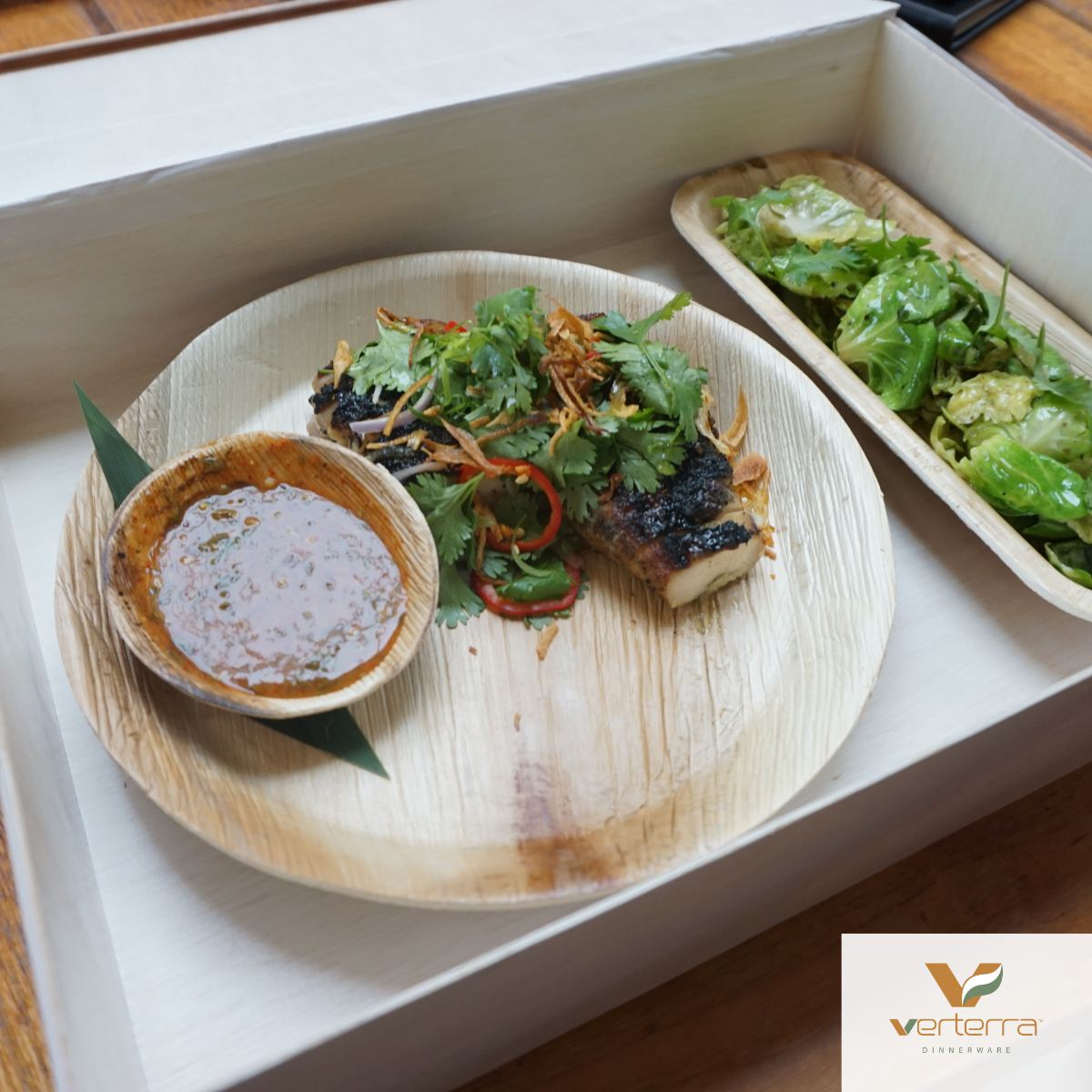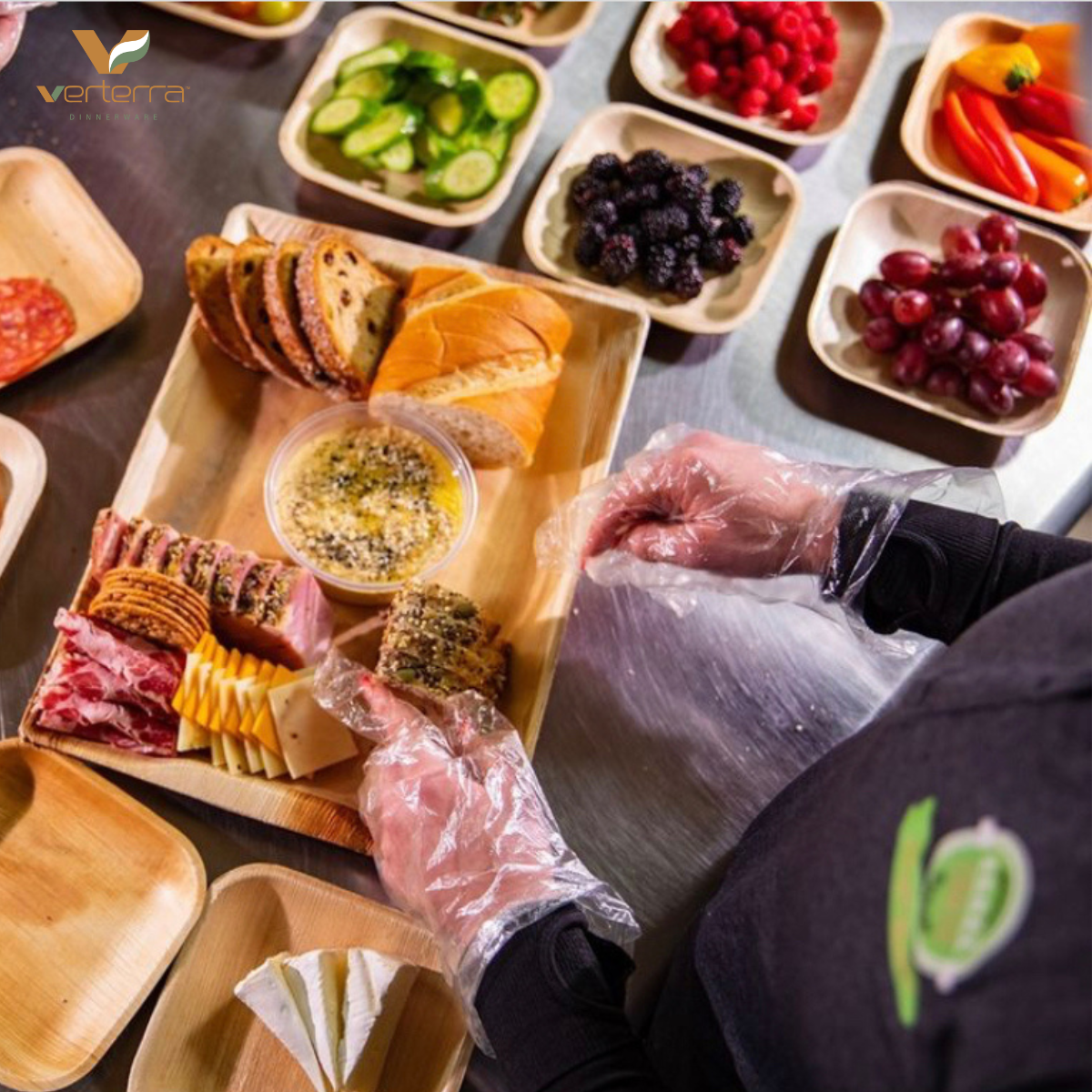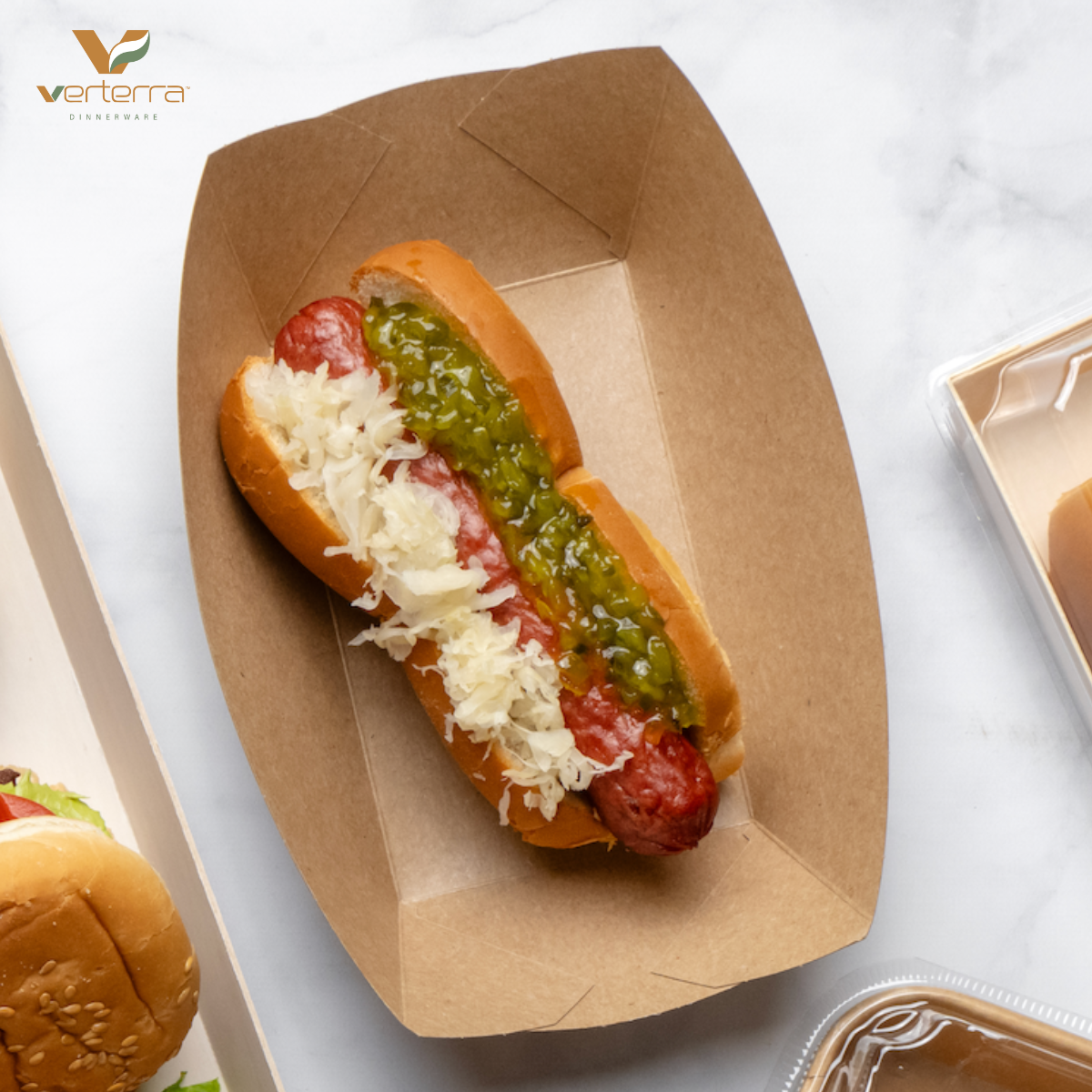
How To Choose Truly Compostable Dinnerware Without Falling for Greenwashing Claims
It’s no secret that single-use disposable products are a major environmental problem. Of the 380 million tons of plastic we produce yearly, up to 50% of that is from single-use products. The negative impacts of single-use products on the environment (and the people and animals that live in it) are far-reaching: Because disposable plastic items don’t biodegrade, they end up in our oceans, waterways, and ground soil.
The result? Microplastics in our food, drinking water, and marine life, which we consume through the food chain.
The natural alternative to single-use plastic is compostable, but not all compostable products are created equal. In fact, researchers have found that 60% of compostable plastic products do not biodegrade at all. These “compostable” plastics end up in landfills, releasing methane gas into the atmosphere, leading many to wonder whether or not the plastic industry is greenwashing consumers with their compostable claims.
What is ‘Greenwashing,’ Anyways?
Greenwashing is a tactic used by companies to make their products appear more environmentally friendly than they actually are. Companies use this marketing strategy to appeal to environmentally conscious consumers, but it is also used by companies who are trying to increase their market share.
According to a study conducted by the nonprofit organization Greenpeace, a company can greenwash by engaging in environmental tokenism (such as promoting one 'green' feature or product while ignoring other environmental issues), using vague or broad terms to describe eco-friendly features, using buzzwords, and so much more.
All of these factors contribute to the greenwashing effect and make it difficult for consumers to make informed decisions.
When Compostable Doesn’t Actually Mean ‘Compostable’
One of the most common greenwashing tactics is to claim that a product is “compostable” and “biodegradable,” interchanging the two terms. This is a common tactic used by companies trying to greenwash their products.
Typically, anything that is plant-based, natural-mineral-based, or animal-based is biodegradable. These materials may break down at different rates, but they will eventually undergo a degradation cycle. Compostable items work on a similar cycle, breaking down into natural elements in a compostable environment, usually breaking down completely within 90 days. So what’s the difference?
Although biodegradable items can break down into organic matter, they can take anywhere from a few days to a few hundred years to break down completely. And because many biodegradable products end up in landfills that are so lacking in light, air, and moisture, the breakdown process can be extremely slow. Unlike biodegradable products, compostable items are designed to break down in a specific environment, usually in a composting facility, where there is plenty of oxygen and moisture, and the temperature is optimal for the breakdown process (and usually with the help of human intervention).
The composting process takes place either in residential or commercial composting facilities, where the organic material is mixed with a specific amount of water and heat to facilitate the breakdown process. This process usually takes place over a few weeks to months, depending on the item and its size. The difference between these two processes makes it imperative that businesses are transparent about how their products are made and that consumers are well-informed about the differences between these two types of products.
The VerTerra Difference
Although making an informed decision about what to buy and what to consume can be challenging, at VerTerra we are committed to helping you make the right choice. With our line of sustainable Dinnerware from Fallen Leaves™ you can be sure that you’re getting a quality product that is made from natural, renewable resources. Unlike many other products on the market, VerTerra products are 100% BPI-certified compostable and have been independently tested to ensure that they break down in a commercial compost facility.
See and feel the difference at your next dinner party, family gathering, or holiday celebration. Shop our line of products here.
Also in The Dirty Dish

Disposable Luxe: How Compostable Tableware is Reshaping the Event Industry
Gone are the days when disposable meant flimsy, boring, and environmentally careless. In 2025, today’s event professionals are embracing “disposable luxe”—a fast-growing movement that combines elevated aesthetics with eco-conscious choices at affordable prices, making sustainability not just a requirement, but a statement.

The Eco-Conscious Caterer’s Toolkit: Essentials for Modern Events
Clients are no longer just asking what’s on the menu—they’re asking how it’s being served. Today’s tastemakers want elegant, low-waste events that impress guests and align with their values. That’s where Verterra comes in.
In this blog, we break down exactly how to create a stunning, sustainable setup using just five compostable essentials. Whether you’re catering a backyard tasting or a high-end corporate soirée, this is your go-to guide for effortless eco-luxury.
🌿 Sustainable never looked so good.

The Ultimate Guide to Food Boats
Food boats are more than just a convenient way to serve meals—they're a game-changer for eco-conscious food service businesses. From casual cafés to high-end catering, these biodegradable, stylish, and durable containers offer a sustainable alternative to plastic. But not all food boats are created equal. Verterra takes it to the next level with their innovative, chemical-free designs made from renewable materials like kraft paper and balsa wood. Want to know why top chefs and event planners choose Verterra? Read on to discover the ultimate guide to food boats and how they can transform your food presentation while protecting the planet.
